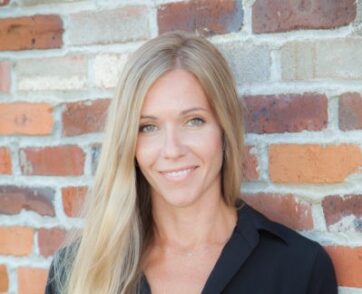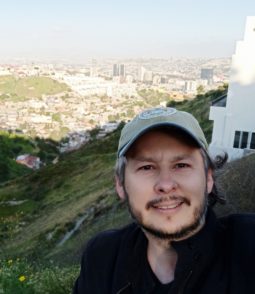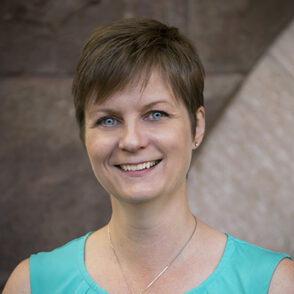EPIC-Latin America and Caribbean Training Workshop
August 22-24 from 9:00 am – 1:00 pm CT (UTC-5)
A free and virtual event simultaneously translated into Spanish.
Are you a university or municipality that’s looking to build climate-resilience, social equity, or economic vitality in your local region?
All cities and communities contend with development challenges and many cities have nearby university faculty and students who are invested in their cities and can help find sustainable solutions. The EPIC Model has a proven track record providing a framework for win-win community-university partnerships –– by first asking communities what they need and want and then matching those needs to existing faculty courses and programs of study.
The EPIC Model offers a robust yet flexible means for harnessing university-based knowledge and applying it in practice on behalf of local cities and communities. Presently, 70+ universities in the USA, Asia, Latin America and Africa have programs that are implementing the EPIC model, and have collectively completed nearly 2000 community-identified projects in more than 350 cities.
The Opportunity
The Educational Partnerships for Innovation in Communities Network (EPIC-N), in partnership with the Inter-American Institute for Global Change Research (IAI), the United Nations Environment Programme Global Adaptation Network (GAN), and ICLEI are pleased to offer a free and virtual learning workshop on the EPIC Model for participants from Latin America and Caribbean countries.
This virtual event will provide a unique opportunity for collaborating pairs of individuals representing municipal governments and corresponding local universities to gain skills on the use of the EPIC Model to strengthen their capacities for climate change adaptation and resilience. Participants will learn more about how the model works and leave with a work plan to implement.
During the three day training participants will spend time learning from EPIC-N Trainers (listed below). The trainers bring years of experience working with the EPIC Model in a variety of contexts. The trainers will provide presentations at the start of each day followed by meaningful discussions open for participants to engage directly with the trainers.
Throughout the event trainers will support participants in the design of their own work plans to move their EPIC Model plans towards implementation. More detailed description of the event will be emailed to participants after registration.
Timing and Structure of the Workshop
The virtual workshop agenda includes three half-day sessions on 22-24 August, 2022 from 9:00 am – 12:00 pm CT (UTC-5) with an additional work period available to participants seeking individualized technical assistance from 12:00 pm – 1:00 pm CT each day. See summary agenda below:
- 22 August
- Introductions and EPIC Model 101 Review
- Break
- Q&A and Discussions
- Focus Group/Pre-Conference for Day 2 Work period with individualized guidance from EPIC-N Trainers, Staff, and other partners
- 23 August
- Deeper Dive into Examples from Community/City Perspective
- Deeper Dive into Example EPIC Model University Programs
- Break
- Q&A and Discussions
- Focus Group/Pre-Conference for Day 3 Work period with individualized guidance from EPIC-N Trainers, Staff, and other partners
- 24 August
- Welcome
- Just Start presentation and work period
- Highlighting success stories from the workshop
- Final Remarks
- Focus Group/Work period with individualized guidance from EPIC-N Trainers, Staff, and other partners
The workshop will be recorded and shared via the EPIC-N Member Commons following the event.
Featured Trainers
Branden Born
Co-Director – Livable City Year – Faculty – University of Washington
Branden is associate professor of Urban Design and Planning and co-director of the Livable City Year program at the University of Washington. He received his master’s and doctoral degrees and in Urban and Regional Planning from the University of Wisconsin. Branden studies planning process and regional governance using the food system as a lens for analysis. His interests include questions of democracy in societal decision-making and the role of the state and planning in a neoliberal context.

Courtney Griesel
Former Economic Development Director – City of Springfield, Oregon
Courtney Griesel is the City of Springfield, OR Economic Development Director. She has a Masters of Organizational Leadership from Gonzaga University and Bachelor of Science in Planning, Public Policy & Management from the University of Oregon. She manages two urban renewal areas, the community enterprise zone, transient room tax program and citywide economic development, including business retention, expansion, and recruitment. Her economic lens spans across the region and globe as she works as a global facilitator and trainer with the EPIC-Network and in partnership with the UN and EPA in European and South African communities. In March of 2017, Griesel was the keynote speaker at the Oregon Governor’s Mass Timber Summit, speaking to innovative use of secondary and mass timber products and the integration of these efforts and products into current development and traded sector opportunities.

Kristofer Patron
Program Administrator – The Sage Project
Kristofer Patrón-Soberano is the Programs’ manager for SDSU’s Center for Regional Sustainability and program administrator for the Sage Project. He is an economist from the Autonomous University of Sinaloa, Mexico, but turned green by completing his master’s degree in environmental management at El Colegio de la Frontera Norte (El Colef) in Tijuana. His research focused on the economic valuation of natural resources, binational collaboration and US-Mexico governance. After earning his degree, he continued working at El Colef as coordinator of border projects. Kristofer also served as deputy director for Tijuana’s Environmental Protection Agency. There, he developed novel programs such as Replicadores Ambientales (Environmental Replicators) to strengthen local environmental education, and Comuniparques to rehabilitate green public spaces in Tijuana’s most vulnerable areas. Now, as part of the Sage Project, Kristofer hopes to keep contributing to the sustainable development of the region.

Jane Rogan
Director – Sustaining Hoosiers Communities
Jane Rogan leads the Sustaining Hoosier Communities (SHC) at the Indiana University Center for Rural Engagement. SHC is an initiative, connecting communities to IU courses, students, and faculty to address community-identified needs and opportunities. A Hoosier by choice, Jane grew up in Cheshire—a rural area of the United Kingdom known for its dairy production and silk weaving arts. Prior to joining the center, Jane worked for the IU Kelley School of Business, the Liberal Arts and Management Program, and the Office of the Vice Provost for Undergraduate Education. Jane holds a Bachelor of Arts in business studies from Birmingham City University and a Master of Science in higher education from Indiana University.
Qualifications Necessary to Apply
EPIC-N invites leaders from Spanish and English speaking countries in the identified regions. Priority will be given to those who have been actively engaged over the last six months learning about the EPIC Model and designing plans with EPIC-Latin America and the Caribbean (EPIC-LAC) Coordinators.
Trainers recommend that participants attend with their potential EPIC Model partners. Pairs attending with representation from at least one person from the university and at least one person from a local municipal/city government who is a proposed partner see better results when attending the EPIC Model workshops. The ideal pairing combines decision-makers and/or people-of-influence on both sides: for example, from the community side, a city manager, assistant city manager, chief resilience officer or equivalent; on the university side, a department or program head, senior administrator, or distinguished professor. The training will be conducted in English with simultaneous translation in Spanish. The members of the designated pair need not have collaborated previously although a history of collaboration or active progress toward developing a collaboration is preferred.
Selection Process
Complete the Following Steps to Receive Additional Event Details Including Zoom Links and Call-in Information
- Complete this registration form. We ask that you provide as much information about your proposed EPIC Model partnership as you can provide. It is highly recommended that you attend as a pair. If you represent a university, we ask that you try and bring the city/municipality that you hope to partner with for your EPIC Model partnership to the training and identify them as such in the registration form. We ask they also complete the registration form. If EPIC-N staff have questions about your registration, the appropriate EPIC-LAC Coordinator will follow up to seek more in-depth information.
- EPIC-N staff will send over the detailed agenda, zoom links, and a calendar invite to the email listed in the registration form.
Other Actions to Complete Before the Workshop
- If you have not already done so, please sign up for the EPIC-N Member Commons as this is where workshop materials will be hosted before, during, and following the event.
- Email your EPIC-LAC Coordinator listed below if you have any questions or concerns.
Additional Information
For more information on the registration process, zoom links or any other details about this opportunity, please use the list below to identify which EPIC-LAC Coordinator to contact:
- Andean – Bolivia, Colombia, Ecuador, Peru, Venezuela – Andrea Birgit Chavez – andreabirgitchavez@gmail.com
- Brazil – Bryce Bray – bewambaybray@gmail.com
- Caribbean – Antigua And Barbuda, The Bahamas, Barbados, Cuba, Dominica, Dominican Republic, Grenada, Haiti, Jamaica, St. Kitts and Nevis, St. Lucia, St. Vincent and the Grenadines, Trinidad and Tobago – Kristofer Patron – kpatron@sdsu.edu
- Central America and Mexico – Belize, Costa Rica, El Salvador, Guatemala, Honduras, Mexico, Nicaragua, Panama – Kristofer Patron – kpatron@sdsu.edu
- Cono Sur – Argentina, Chila, Paraguay, Uruguay – María Inés Carabajal – micarabajal@gmail.com
For more information on EPIC-N or the EPIC Model, please go to www.epicn.org or write to info@epicn.org
Register for the Workshop Here
Presented in partnership by






